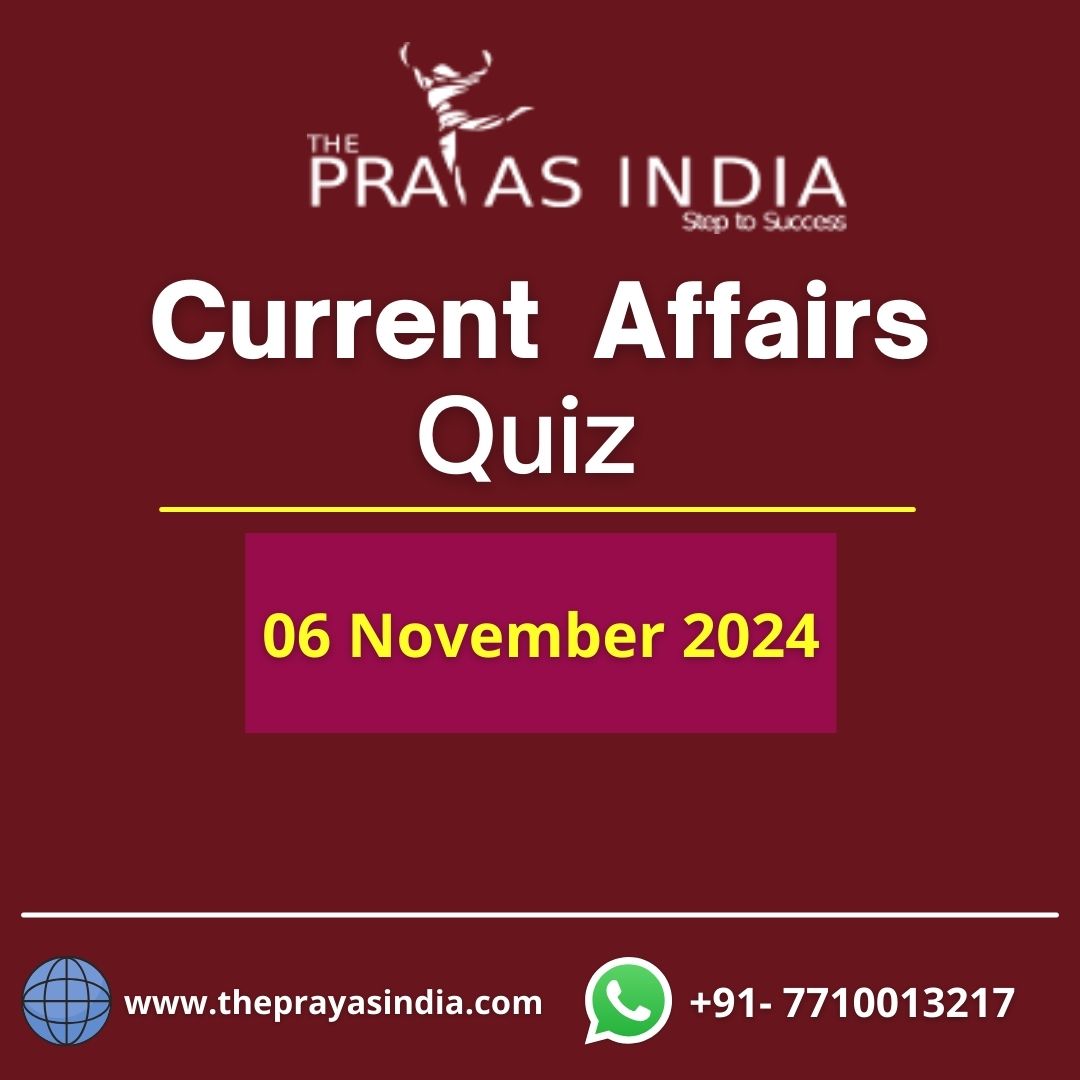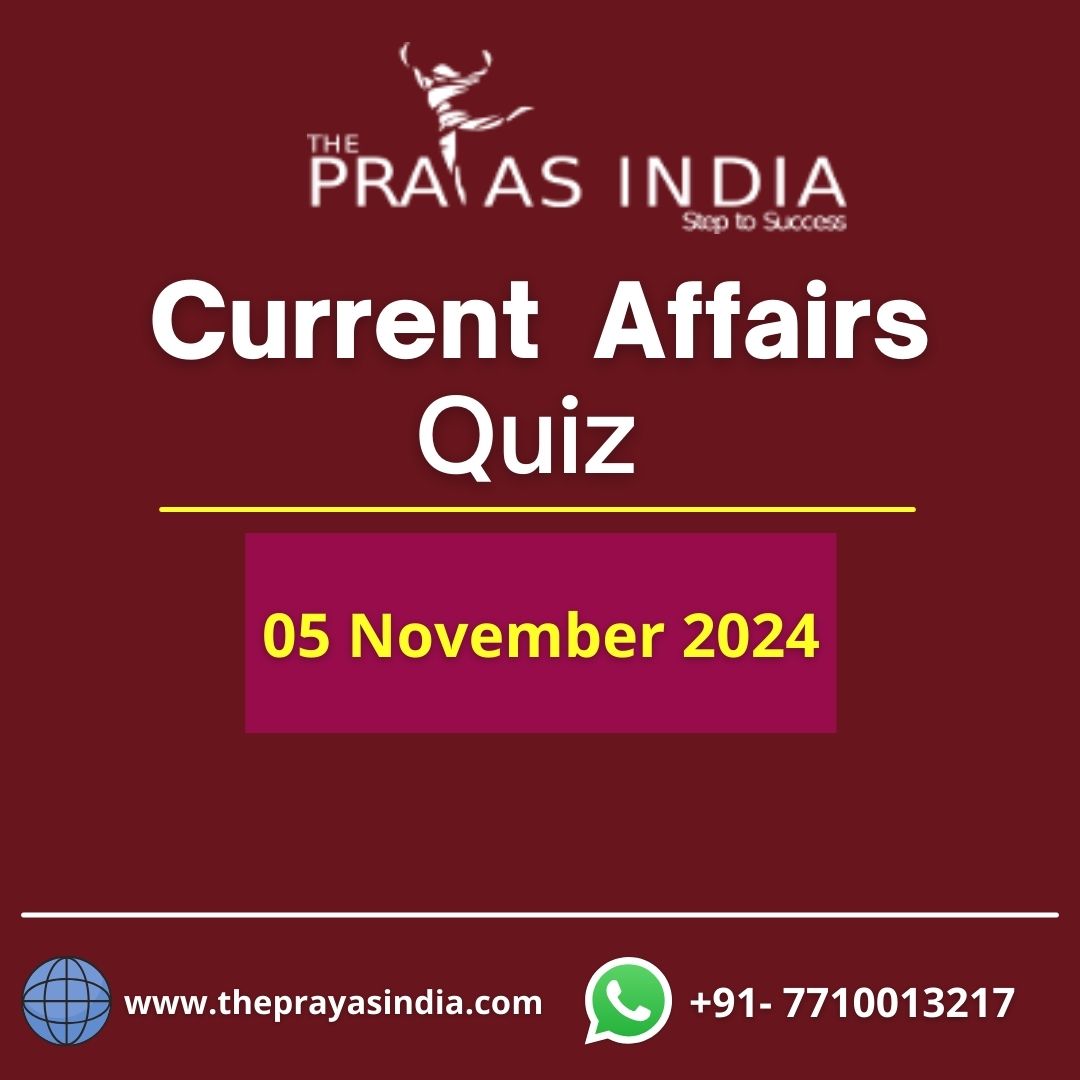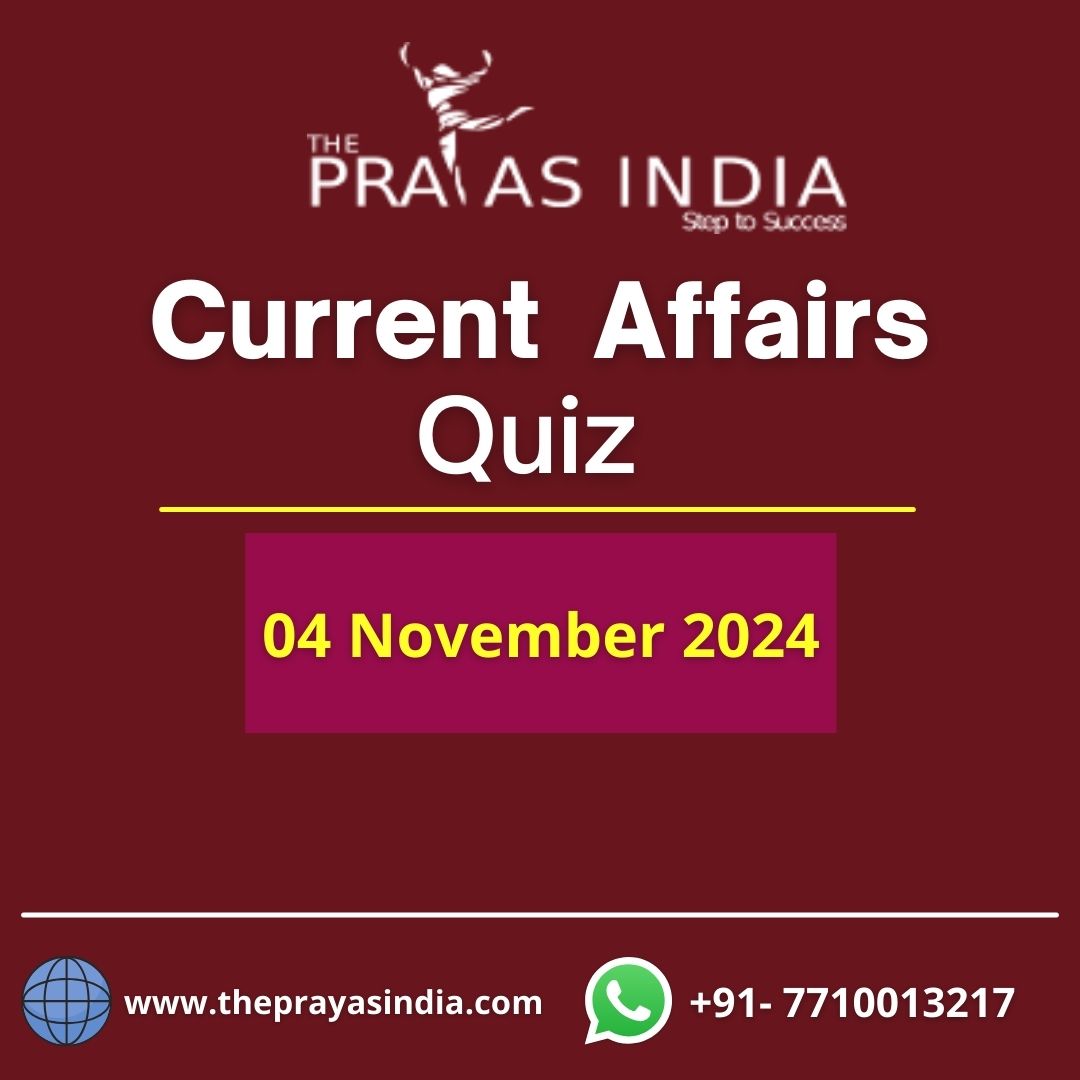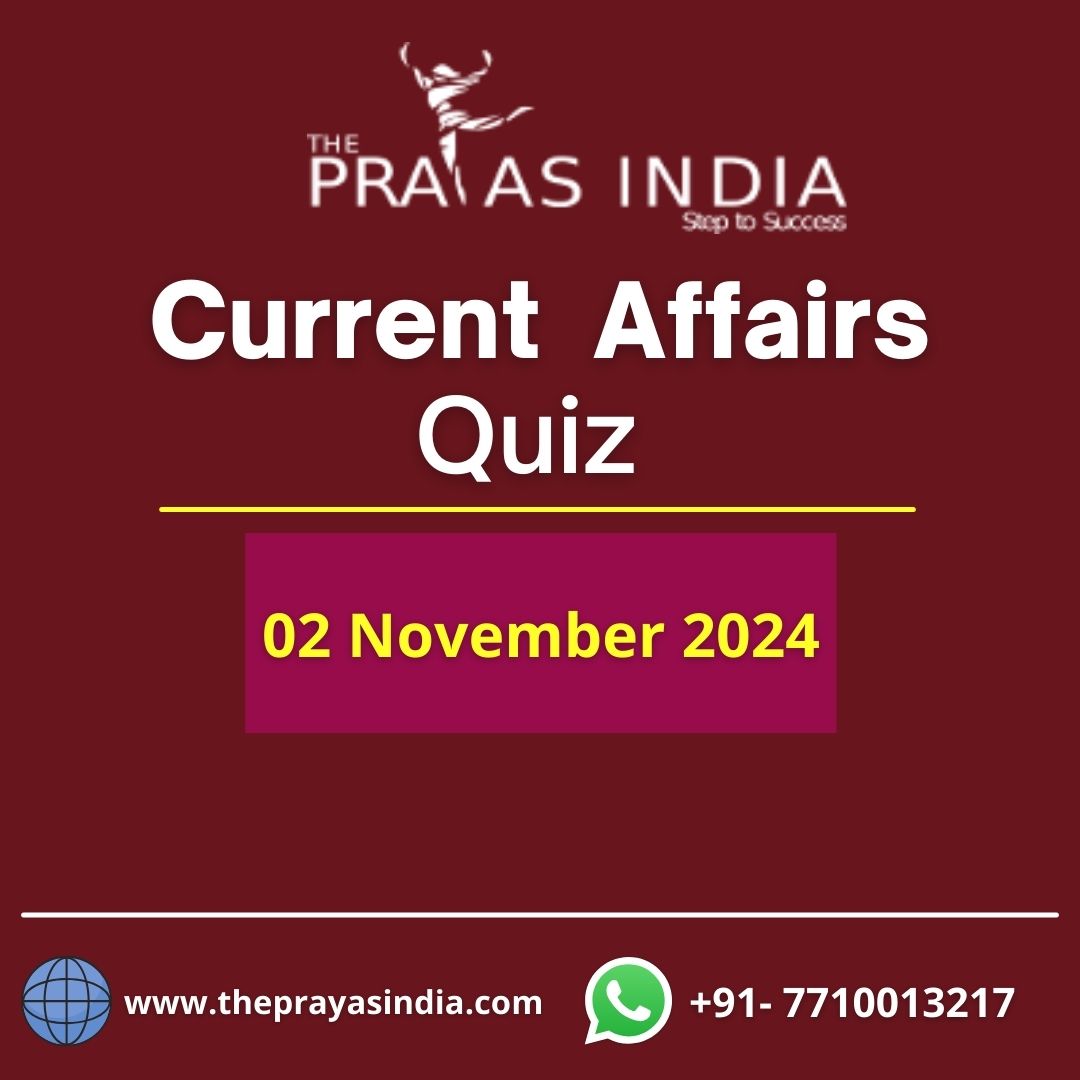Q1. With reference to the “State of Food Security and Nutrition in the World 2024” (SOFI 2024) report, consider the following statements:
- The SOFI 2024 report is published by FAO, IFAD, UNICEF, WFP, and WHO.
- The report indicates that Asia has the highest percentage of undernourished people in the world.
- The cost of a healthy diet in purchasing power parity (PPP) terms is highest in Oceania.
How many of the above statements are correct?
(a) Only one
(b) Only two
(c) All three
(d) None
Ans: (b)
Explanation:
- Statement 1: The SOFI 2024 report is indeed published by FAO, IFAD, UNICEF, WFP, and WHO. So, this statement is correct.
- Statement 2: Asia harbors the largest number of undernourished people, but not the highest percentage; that distinction belongs to Africa. Therefore, this statement is incorrect.
- Statement 3: The cost of a healthy diet is highest in Latin America and the Caribbean, not Oceania. This statement is also incorrect.
- Thus, only one statement is correct.
Q2. Consider the following statements regarding India’s food security and nutrition as highlighted in the SOFI 2024 report:
- India has the highest prevalence of anaemia among women aged 15 to 49 years in South Asia.
- The report shows that 55.6% of Indians are unable to afford a healthy diet.
- India has the highest prevalence of stunting among children under five years globally.
Which of the above statements is/are correct?
(a) 1 and 2 only
(b) 2 and 3 only
(c) 1 and 3 only
(d) 1, 2, and 3
Ans: (a)
Explanation:
- Statement 1: India does have the highest prevalence of anaemia among women aged 15 to 49 years in South Asia, making this statement correct.
- Statement 2: The SOFI 2024 report indeed highlights that 55.6% of Indians cannot afford a healthy diet. So, this statement is also correct.
- Statement 3: While India has a high prevalence of stunting (31.7%), it does not have the highest globally. Thus, this statement is incorrect.
- Thus, statements 1 and 2 are correct.
Q3. With reference to the “Maharashtra Special Public Security Bill, 2024,” consider the following statements:
- The Bill allows for the prosecution of individuals associated with unlawful organizations without the need for prior permission from higher authorities.
- The offences under this Bill are non-cognisable and bailable.
- The Bill expands the definition of “unlawful activity” to include acts that interfere with public order.
How many of the above statements are correct?
(a) Only one
(b) Only two
(c) All three
(d) None
Ans: (b)
Explanation:
- Statement 1: The Maharashtra Special Public Security Bill, 2024, permits faster prosecution by allowing district magistrates or police commissioners to grant necessary permissions, bypassing the need for sanction from higher authorities. Thus, Statement 1 is correct.
- Statement 2: The offences under this Bill are cognisable, allowing arrests without a warrant, and non-bailable. Therefore, Statement 2 is incorrect.
- Statement 3: The Bill indeed expands the definition of “unlawful activity” to include acts that interfere with public order, administration of law, and generating fear among the public. Hence, Statement 3 is correct.
- Conclusion Thus, two of the statements are correct, making option (b) the correct answer.
Q4. Consider the following statements about the Unlawful Activities (Prevention) Act (UAPA) in comparison to the Maharashtra Special Public Security (MSPS) Bill, 2024:
- The UAPA requires the confirmation of unlawful organization declarations by a tribunal, whereas the MSPS Bill allows an advisory board to perform this function.
- Both UAPA and the MSPS Bill have similar definitions of “unlawful activity.”
- Under the UAPA, the central government can declare any activity unlawful, while the MSPS Bill restricts this power to the state government.
Which of the statements given above is/are correct?
(a) 1 only
(b) 1 and 3 only
(c) 2 and 3 only
(d) 3 only
Ans: (b)
Explanation:
- Statement 1: The UAPA requires confirmation of unlawful organization declarations by a tribunal led by a High Court judge, while the MSPS Bill allows an advisory board of ex-judges or eligible persons to perform this function. Therefore, Statement 1 is correct.
- Statement 2: The definitions of “unlawful activity” under the UAPA and the MSPS Bill are not similar. The MSPS Bill expands the definition to include broader aspects like interference with public order. Thus, Statement 2 is incorrect.
- Statement 3: Under the UAPA, the central government has the authority to declare any activity unlawful, whereas the MSPS Bill restricts this power to the state government of Maharashtra. Therefore, Statement 3 is correct.
- Conclusion Statements 1 and 3 are correct, making option (b) the correct answer.
Q5. With reference to the Protection of Children from Sexual Offences (POCSO) Act, 2012, consider the following statements:
- The POCSO Act criminalizes consensual sexual activities involving minors.
- The POCSO Act includes provisions for the death penalty for aggravated sexual offenses against children.
- The POCSO Act mandates that every trial must be completed within a period of six months from the date of cognizance.
How many of the above statements are correct?
(a) Only one
(b) Only two
(c) All three
(d) None
Answer: (b)
Explanation:
- Statement 1 is correct. The POCSO Act criminalizes all sexual activities involving minors, even if consensual. The law does not differentiate based on the nature of the relationship, treating all sexual activities involving minors as criminal offenses.
- Statement 2 is correct. The POCSO Act, 2012, includes provisions for severe punishments, including the death penalty for aggravated sexual offenses against children. This was introduced to deter the most heinous crimes against minors.
- Statement 3 is incorrect. The POCSO Act mandates that every trial should be completed within a period of one year from the date of cognizance, not six months. Therefore, the correct answer is (b).




